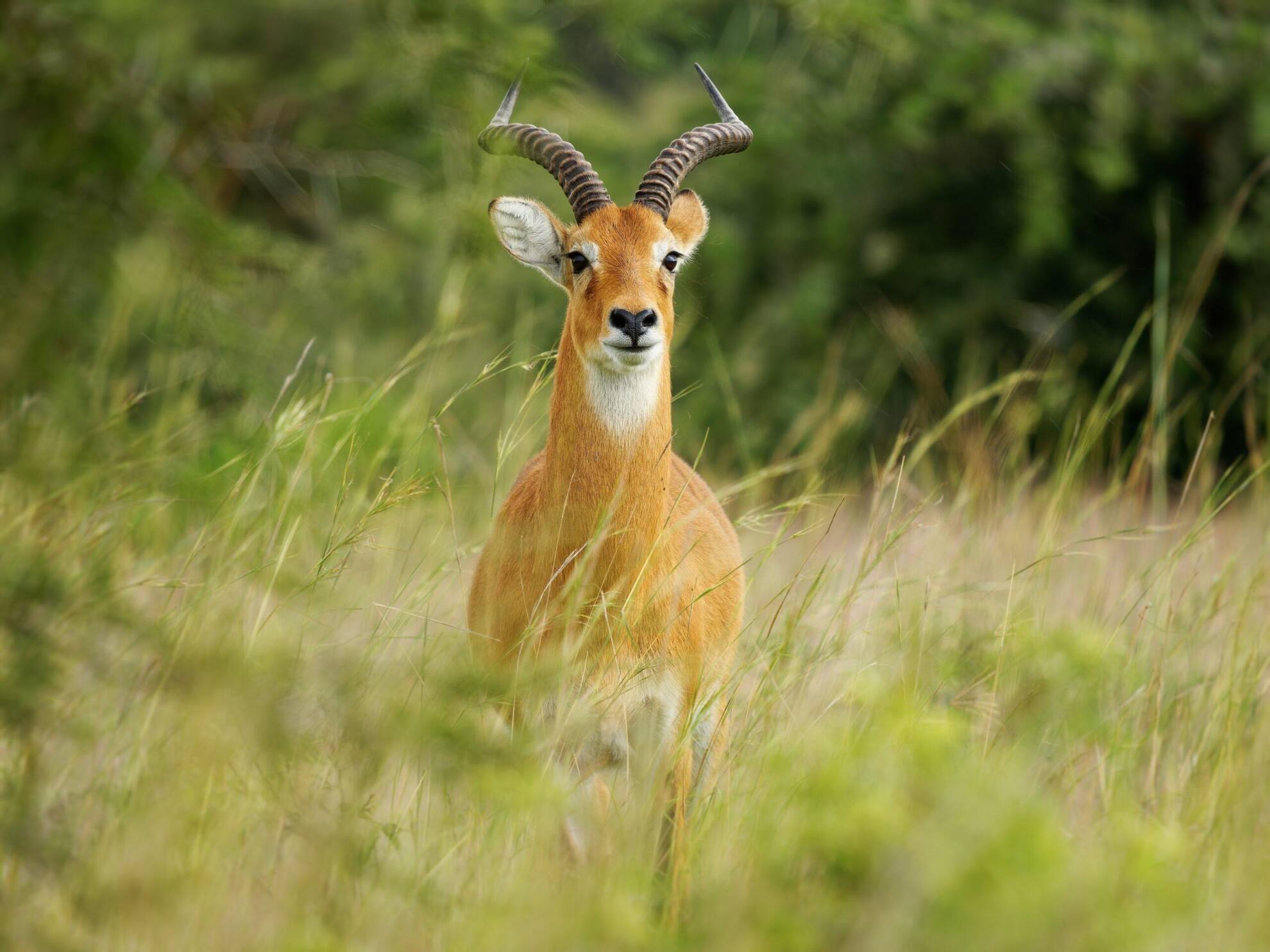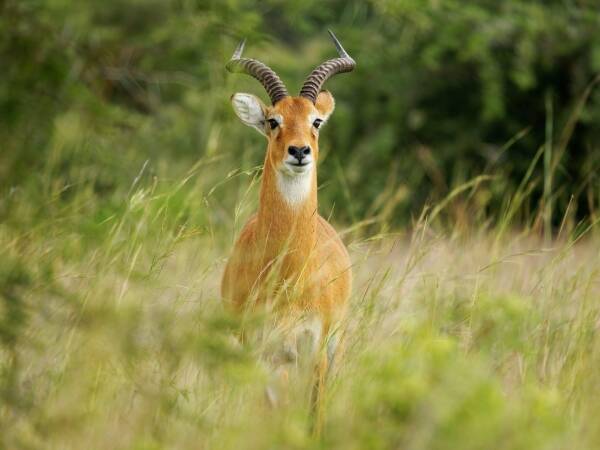

The kob (Kobus kob) is a medium-sized, robust, and powerfully built African antelope inhabiting central Africa and parts of west and east Africa. Three species of kob are active and found in more than 15 African countries.
The three subspecies of kob antelope are:
Buffon’s kobs have the largest distribution and are found in the moister sections of the savannas that run from Sudan to Senegal. The white-eared kob are found in the swamp-like areas of South Sudan and Ethiopia while the Uganda kob inhabits sections of Uganda, the DRC, and South Sudan.
These herbivorous antelopes inhabit wet areas, such as floodplains, grasslands, savannas, shrublands, and wetlands, feeding on various grasses and reeds.
The kob is diurnal but is largely inactive during the hotter sections of the day when it rests or sleeps in shaded, covered areas. Herds can vary in number from 5-40, with the groups being either females and calves or male herds. There is no specific breeding period for the kob, but peaks have been recorded. The gestation period is roughly 240 days, and the female births a single calf.
The main predators of this medium-sized antelope, apart from hunters on a game hunting safari, include leopards, lions, hyenas, hunting dogs, and cheetahs.
The kob is listed by the IUCN with a red list status of least concern, but their numbers are diminishing due to hunting as well as human development.
Name:
Kobus Kob
Male Weight:
138-206 pounds
Male Shoulder Height:
32-39 inches
Range:
Central Africa, and parts of West and East Africa
Life span:
9 years
Kobs are social animals, often seen in large herds, and are distinguished by their striking, lyre-shaped horns
At a glance, there are some similarities in appearance between the Kob and the impala, only the Kob is more heavily built. Males have heavy, laterally ridged, lyrate-shaped horns, while females are built lighter and don’t have horns. The kob’s coat is reddish-brown while its forelegs have a black marking on the front and a white underbelly. The area around their ears, the inside of the ears, and their throat patch are white. As they age, the males’ coats darken.
Hunting methods for kob antelope include both spot-and-stalk and walk-and-stalk, with the kob having excellent hearing and eyesight, thereby ensuring that the stalking section of the African hunting safari is even more challenging for the hunter.
A kob hunting safari can be challenging as the terrain in which a hunter is undertaking the stalk may be difficult to navigate. The kob is also renowned for its excellent hearing and keen eyesight, ensuring a challenge for the hunter to approach the target without detection. This graceful antelope is a wonderful addition to any game hunting trophy room, sporting its attractive coat and large, striking horns.
Accurate shot placement will result in a humane and ethical hunting safari. Sloppy shot placement will result in a wounded antelope, and a very long day tracking the injured prey. Aim for the vital organs of the heart and lungs, as a clean shot targeting these areas will result in a swift kill. Stay away from high-risk shots such as the head and neck. Like many other African plains game antelopes, rifle calibers from .270 and upwards will work well on this species. Popular options include the .308 Winchester as well as a .30-06, with these options combining power and accuracy while kob hunting in Africa.
Search from our range of Hunts across various popular destinations in Africa.
Find A Hunt